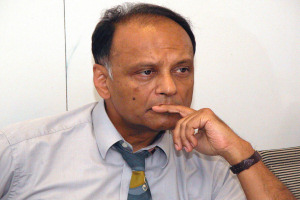Shop till you drop? Sir Partha explains why
08 Mar 2012
One of the world’s leading economists is to explain the latest thinking about what drives us to consume goods and services at a University of Manchester lecture tomorrow (8 March).

Sir Partha Dasgupta, who is Professorial Research Fellow at the University’s Sustainable Consumption Institute, will say that habits, the human desire to show off and fads and fashions are often overlooked as drivers of consumption.
The price of goods and services and our incomes , he will say, are only one element in a complex mix of what makes us shop till we drop.
Professor Dasgupta won the Zayed Prize for Scientific and technological achievements in the environment in 2011, the world’s world's most valuable environmental award.
He is a former President of the Royal Economic Society, the European Economic Association and currently Chairman of the Scientific Advisory Board of the Wittgenstein Centre, Vienna; and Chairman of the Scientific Board of the International Human Dimensions Programme (IHDP) on Global Environmental Change.
He said: “If we are to address the environmental and other challenges that confront us, we will need to change our patterns of consumption.
“The orthodox view is that prices and incomes are the main drivers of consumption.
“But in an effort to understand what drives consumption, economists are continually striving to look at other factors too.
“Habits, for example, can be hard to estimate.
“But habits can explain why demand is so difficult to change: demand is often history dependent.
“Economists are also starting to pay close attention to the basic human instinct of showing off: consumption is sometimes driven by the need to signal more worth.
“This could be described as wasteful and not reflective of true value.”
Professor Dasgupta’s lecture precedes a two-day SCI conference, held in his honour, on consumption on 8th and 9th March.
The findings on consumption behaviour will be presented by invited international experts from a range of disciplines.
